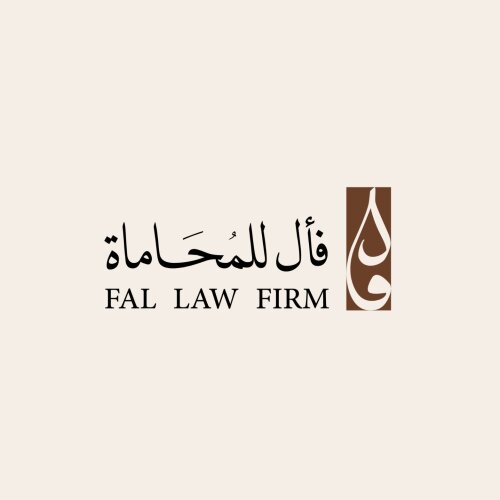Best Lawsuits & Disputes Lawyers in Riyadh
Share your needs with us, get contacted by law firms.
Free. Takes 2 min.
List of the best lawyers in Riyadh, Saudi Arabia

About Lawsuits & Disputes Law in Riyadh, Saudi Arabia
Lawsuits and disputes in Riyadh, Saudi Arabia are governed predominantly by Islamic Law, also known as Sharia law. The Saudi Arabian legal system is unique and different from Western and other Arab state legal systems. It involves a range of disputes including but not limited to, commercial, civil, criminal, and family law disputes. These disputes are settled in Saudi courts, which include general courts, specialized courts, and administrative courts. It is essential to be knowledgeable about these systems or to obtain expert legal advice when involved in a dispute.
Why You May Need a Lawyer
Engaging a lawyer can be crucial when facing lawsuits and disputes in Riyadh. If you're involved in a legal disagreement over business contracts, real estate transactions, or potential family law issues like divorce or inheritance, legal representation significantly enhances your likelihood of a favorable outcome. Lawyers are skilled in navigating the complex legal system and have the expertise in drafting legal documents, offering informed advice, and representing their clients professionally.
Local Laws Overview
Sharia law, applied in Riyadh, is derived directly from the Quran and the Sunnah, defined by the life and actions of Prophet Mohammed. The law of contracts, torts, and personal status disputes among others, derive their principles from these sources. There are also statutes called Royal Decrees and Ministerial Resolutions that govern specific areas of law such as labor, commercial, and corporate laws. Knowledge of these local laws significantly influences the outcome of a lawsuit and dispute resolution strategies.
Frequently Asked Questions
1. Can I represent myself in a Saudi court?
It's allowed to represent oneself in court, but it is not often advisable due to the complex nature of Sharia law.
2. Are court proceedings conducted in English?
No, court proceedings are usually conducted in Arabic so it is paramount to have an Arabic speaker present especially if you don't speak the language.
3. What is the procedure for filing a lawsuit?
Filing a lawsuit involves multiple steps including drafting a statement of claim, submitting the claim to the competent court, and sending a summons to the defendant.
4. How long does a lawsuit take?
The duration of a lawsuit varies significantly from case to case, depending on the nature of the dispute, the evidence presented and the court’s schedule.
5. Are there alternatives to litigation?
Yes, alternatives include arbitration, mediation, and reconciliation, depending on the nature of the dispute.
Additional Resources
The Saudi Bar Association provides guidance and legal advice. The Ministry of Justice also offers resources and information related to the kingdom's legal system. Commercial law-related disputes information is available from the Saudi Arabian General Investment Authority.
Next Steps
If you need legal help with lawsuits and disputes in Riyadh, it is advisable to first seek advice from a legal professional. They can guide you through the process, provide advice on your case, and potentially represent you in court. Consider all the information presented, weigh your options, and then take appropriate legal action.
Lawzana helps you find the best lawyers and law firms in Riyadh through a curated and pre-screened list of qualified legal professionals. Our platform offers rankings and detailed profiles of attorneys and law firms, allowing you to compare based on practice areas, including Lawsuits & Disputes, experience, and client feedback.
Each profile includes a description of the firm's areas of practice, client reviews, team members and partners, year of establishment, spoken languages, office locations, contact information, social media presence, and any published articles or resources. Most firms on our platform speak English and are experienced in both local and international legal matters.
Get a quote from top-rated law firms in Riyadh, Saudi Arabia — quickly, securely, and without unnecessary hassle.
Disclaimer:
The information provided on this page is for general informational purposes only and does not constitute legal advice. While we strive to ensure the accuracy and relevance of the content, legal information may change over time, and interpretations of the law can vary. You should always consult with a qualified legal professional for advice specific to your situation.
We disclaim all liability for actions taken or not taken based on the content of this page. If you believe any information is incorrect or outdated, please contact us, and we will review and update it where appropriate.
Browse lawsuits & disputes law firms by service in Riyadh, Saudi Arabia
Riyadh, Saudi Arabia Attorneys in related practice areas.
















